Life
Sign up for our newsletter
We summarize the week's scientific breakthroughs every Thursday.
-
 Ecosystems
EcosystemsLike flyways for birds, we need to map swimways for fish
Mapping fish migration routes and identifying threats is crucial to protecting freshwater species and their habitats, ecologists argue.
-
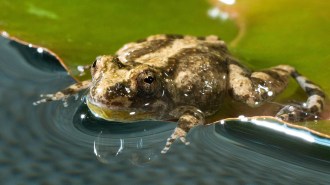 Animals
AnimalsCricket frogs belly flop their way across water
Cricket frogs were once thought to hop on the water’s surface. They actually leap in and out of the water in a form of locomotion called porpoising.
-
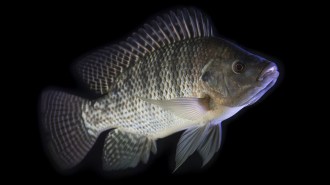 Animals
AnimalsFever’s link with a key kind of immunity is surprisingly ancient
When sick, Nile tilapia seek warmer water. That behavioral fever triggers a specialized immune response, hinting the connection evolved long ago.
-
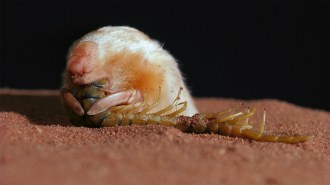 Animals
AnimalsMole or marsupial? This subterranean critter with a backward pouch is both
Genetic analyses have solved the riddle of where a marsupial mole fits on the tree of life: It’s a cousin to bilbies, bandicoots and Tasmanian devils.
By Susan Milius -
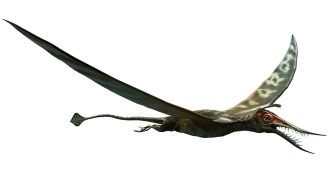 Paleontology
PaleontologyA mysteriously large pterosaur finally has an identity
A Jurassic pterosaur fossil, known to paleontologists for over 160 years, isn’t a new species. It is an odd specimen of Rhamphorhynchus muensteri.
By Jake Buehler -
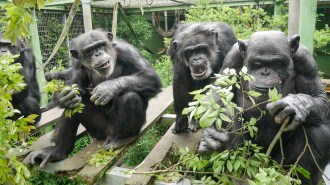 Animals
AnimalsIn chimpanzees, peeing is contagious
The first study of copycat urination in an animal documents how one chimpanzee peeing prompts others to follow suit. Now researchers are exploring why.
-
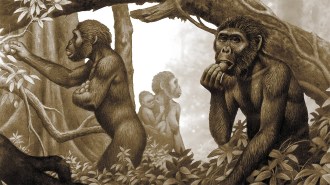 Life
LifeEarly human ancestors didn’t regularly eat meat
Chemicals in the tooth enamel of Australopithecus suggest the early human ancestors ate very little meat, dining on vegetation instead.
By Jake Buehler -
 Genetics
GeneticsIron Age Celtic women’s social and political power just got a boost
Ancient DNA indicates women stayed in their home communities and married partners from outside the area.
By Bruce Bower -
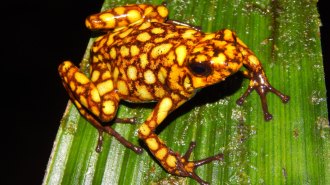 Life
LifeToxin-gobbling bacteria may live on poison dart frog skin
Toxins on poison dart frog skin mold the skin's microbial community, boosting species variety and potentially even feeding some daredevil bacteria.
By Jake Buehler -
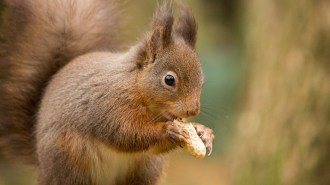 Animals
AnimalsHand-feeding squirrels accidentally changed their skulls
When fed peanuts, red squirrels in Britain developed weaker bites — showing that food supplements to threatened animals could have unintended side effects.
-
 Neuroscience
NeuroscienceHow people suppress memories may be key to PTSD recovery
People who recovered from PTSD changed the way their brains handle intrusive thoughts, a study of survivors of the 2015 Paris terrorist attacks shows.
-
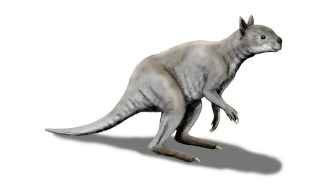 Paleontology
PaleontologyHumans, not climate change, may have wiped out Australia’s giant kangaroos
About 40,000 years ago, giant kangaroos vanished Down Under. Dental analyses suggest a varied diet, meaning climate change was not the main cause.